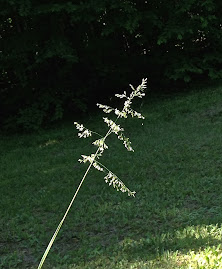You may walk out in any direction over the earth's surface, lifting your horizon, and everywhere your path, climbing the convexity of the globe, leads you between heaven and earth the light of the sun and stars and the habitations of man.
June 7, 2014
I wonder that I ever get five miles on my way, the walk is so crowded with events and phenomena.
How far does our knowledge really extend? We believe that the possibility of the future far exceeds the accomplishment of the past. We find ourselves naturally expecting or prepared for far greater changes than any which we have experienced within the period of distinct memory -- only to be paralleled by experiences which are forgotten. I do not even infer the future from what I know of the past.
I am hardly better acquainted with the past than with the future.
How far does our knowledge really extend? We believe that the possibility of the future far exceeds the accomplishment of the past. We find ourselves naturally expecting or prepared for far greater changes than any which we have experienced within the period of distinct memory -- only to be paralleled by experiences which are forgotten. I do not even infer the future from what I know of the past.
I am hardly better acquainted with the past than with the future.
One of those gentle, straight-down rainy days, when the rain begins by spotting the cultivated fields as if shaken from a pepper-box; a fishing day, when I see one neighbor after another, having donned his oil-cloth suit, walking or riding past with a fish-pole, having struck work, - a day and an employment to make philosophers of them all.
H.D. Thoreau, Journal, June 7, 1851
H.D. Thoreau, Journal, June 7, 1851
The walk is so crowded with events and phenomena. See August 30, 1856 ("The more thrilling, wonderful, divine objects I behold in a day, the more expanded and immortal I become.")
It is a certain faeryland where we live. See November 21, 1850 ("Seeing the sun falling on a distant white pinewood with mingled gray and green, in an angle where this forest meets a hill covered with shrub oaks, affects me singularly, reinspiring me with all the dreams of my youth. It is a place far away, yet actual and where I have been. It is like looking into dreamland. It is one of the avenues to my future"); June 16, 1854 (" Do I not live in a garden, — in paradise?"); August 6, 1852 ("We live, as it were, within the calyx of a flower.")
I am hardly better acquainted with the past than with the future. Compare May 12, 1857 ("Our past experience is a never-failing capital which can never be alienated, of which each kindred future event reminds us. If you would have the song of the sparrow inspire you a thousand years hence, let your life be in harmony with its strain to-day.”); December 8, 1859 ("Only the poet has the faculty to see present things as if also past and future, as if universally significant.”)
One of those gentle, straight-down rainy days. I see one neighbor after another, having donned his oil-cloth suit, walking or riding past with a fish-pole, having struck work, - - a day and an employment to make philosophers of them all. See June 7, 1854 ("This louring day has been a regular fisherman's day, and I have seen many on the river, a general turnout."); See also January 12, 1855 ("On Flint’s Pond I find Nat Rice fishing. He has not caught one. I asked him what he thought the best time to fish. He said, “When the wind first comes south after a cold spell, on a bright morning.”"); June 26, 1853 ("Many of my fellow-citizens might go fishing a thousand times, perchance, before the sediment of fishing would sink to the bottom and leave their purpose pure, -- before they began to angle for the pond itself.”); December 28, 1856 ("if not catching many fish, still getting what they went for, though they may not be aware of it, i. e. a wilder experience than the town affords.")
June 7. See A Book of the Seasons, by Henry Thoreau, June 7
A Book of the Seasons, by Henry Thoreau"A book, each page written in its own season,out-of-doors, in its own locality.”
~edited, assembled and rewritten by zphx © 2009-2021





No comments:
Post a Comment